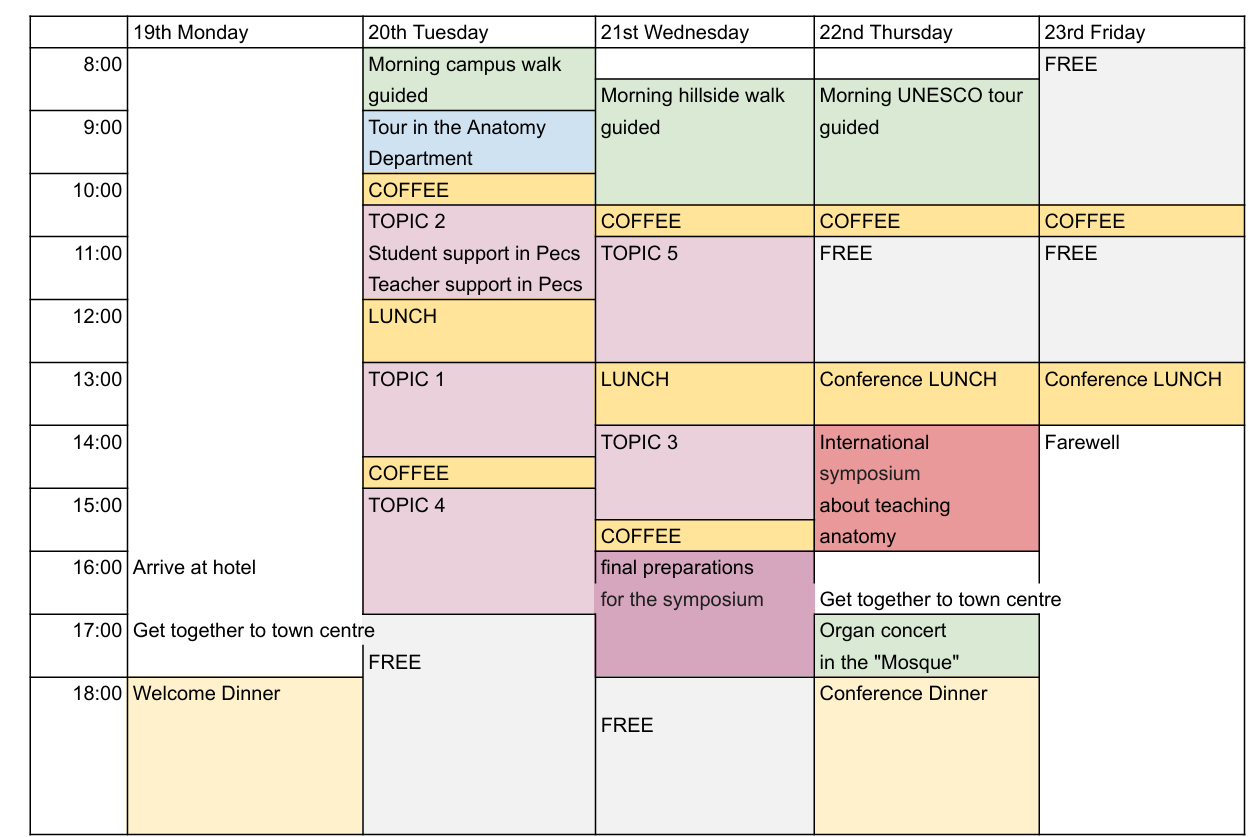LEANbody Events in Hungary
"Integrating the sustainable development goal 4 on quality education in teaching human anatomy" - Workshop in Pécs, 06. 2023
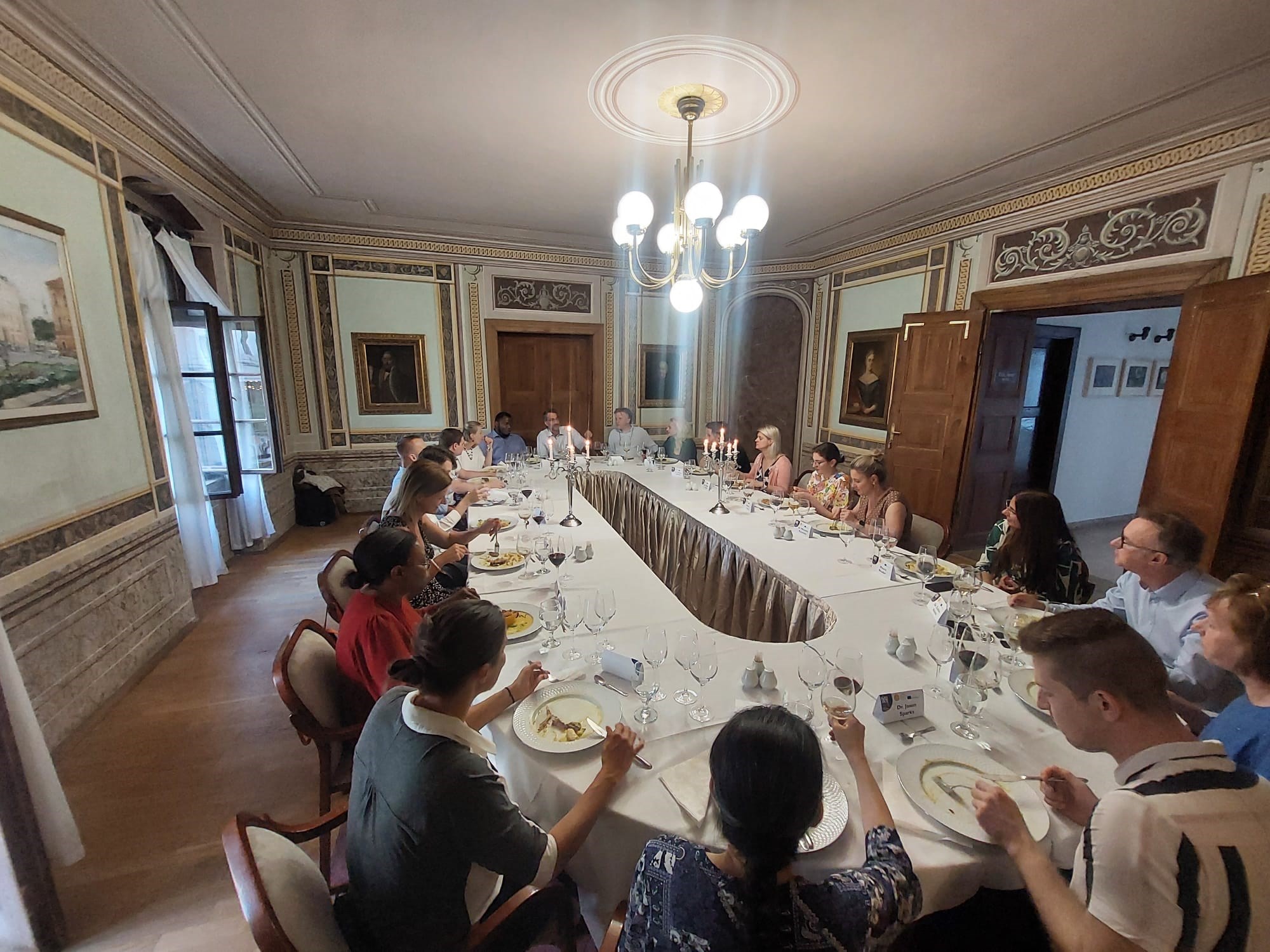
The second LEANbody training event was held in Pécs, covering a range of important topics such as teaching traditions, student-centered and teacher-centered pedagogy, support systems, and the mental health of students during the education process at universities.
Participants explored the teaching traditions at universities participating in the LEANbody project (Brno, Cambridge, Pécs, Zagreb), resulting in valuable insights into different educational approaches. Broad discussions on the differences between student-centered and teacher-centered education were particularly enlightening, highlighting the strengths and challenges of each method. Student-centered education focuses on active learning, encouraging students to take a more participatory role in their education. This approach promotes critical thinking, problem-solving, and collaboration. In contrast, teacher-centered education employs more traditional lecture-based methods, where the teacher acts as the primary source of knowledge. While this method ensures structured and comprehensive curriculum coverage, it may limit student interaction. They observed a need to shift towards a more student-centered approach at universities in Central Europe.
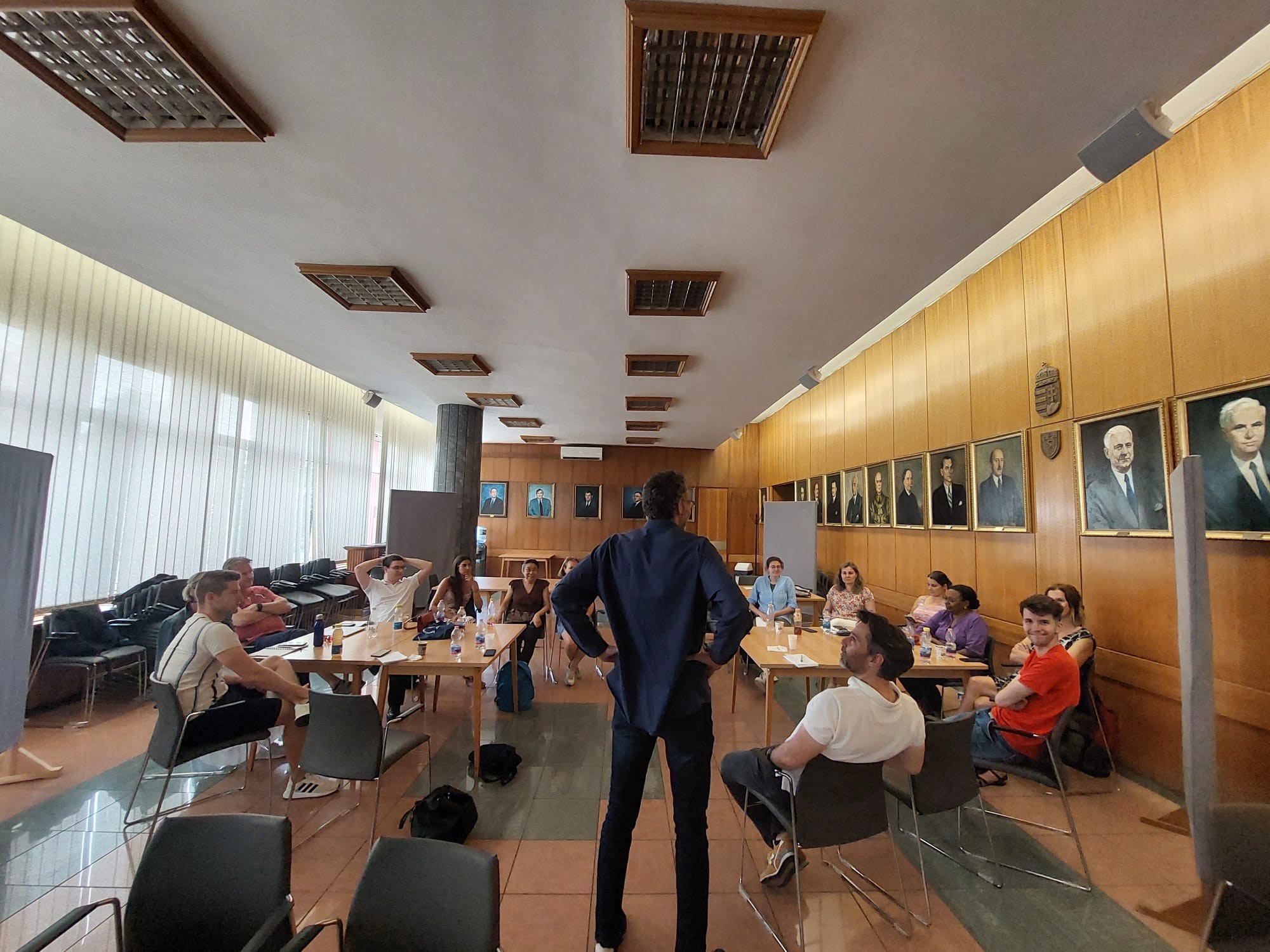
Dr. Laura Csík introduced the participants to the student and teacher support systems at the University of Pécs, showcasing effective strategies for supporting both groups. Student support includes counseling services, academic advising, and peer mentoring programs to help students navigate academic and personal challenges. Teacher support offers professional development workshops, teaching resources, and a supportive community to enhance teaching effectiveness and job satisfaction. The issue of mental health and well-being was widely discussed, emphasizing its importance in the educational environment and the need for robust support mechanisms. Strategies for promoting mental well-being among students and staff were discussed, including stress management workshops, mental health awareness campaigns, and accessible counseling services.

Following the workshop, the Symposium on Teaching Anatomy took place (see below). Both events concluded with a roundtable discussion about teaching traditions, fostering a rich exchange of ideas and best practices. Participants shared best practices from their institutions, discussing common challenges such as balancing academic rigor with student well-being, and exploring potential solutions like flexible learning schedules and increased mental health support. The discussion fostered potential collaborations between universities to develop joint programs and share resources, enhancing the overall quality of education and support. Participants initiated a closer collaboration with the Zagreb team to exchange materials for anatomy teaching and gain insights into how to incorporate constructive alignment into anatomy curricula. Furthermore, Dr. Amani Eltayb from the Karolinska Institute shared her expertise in formulating learning objectives better and has initiated the development of new materials for anatomy education, ensuring that educational goals are clearer, better measurable, and aligned with best practices in medical education.
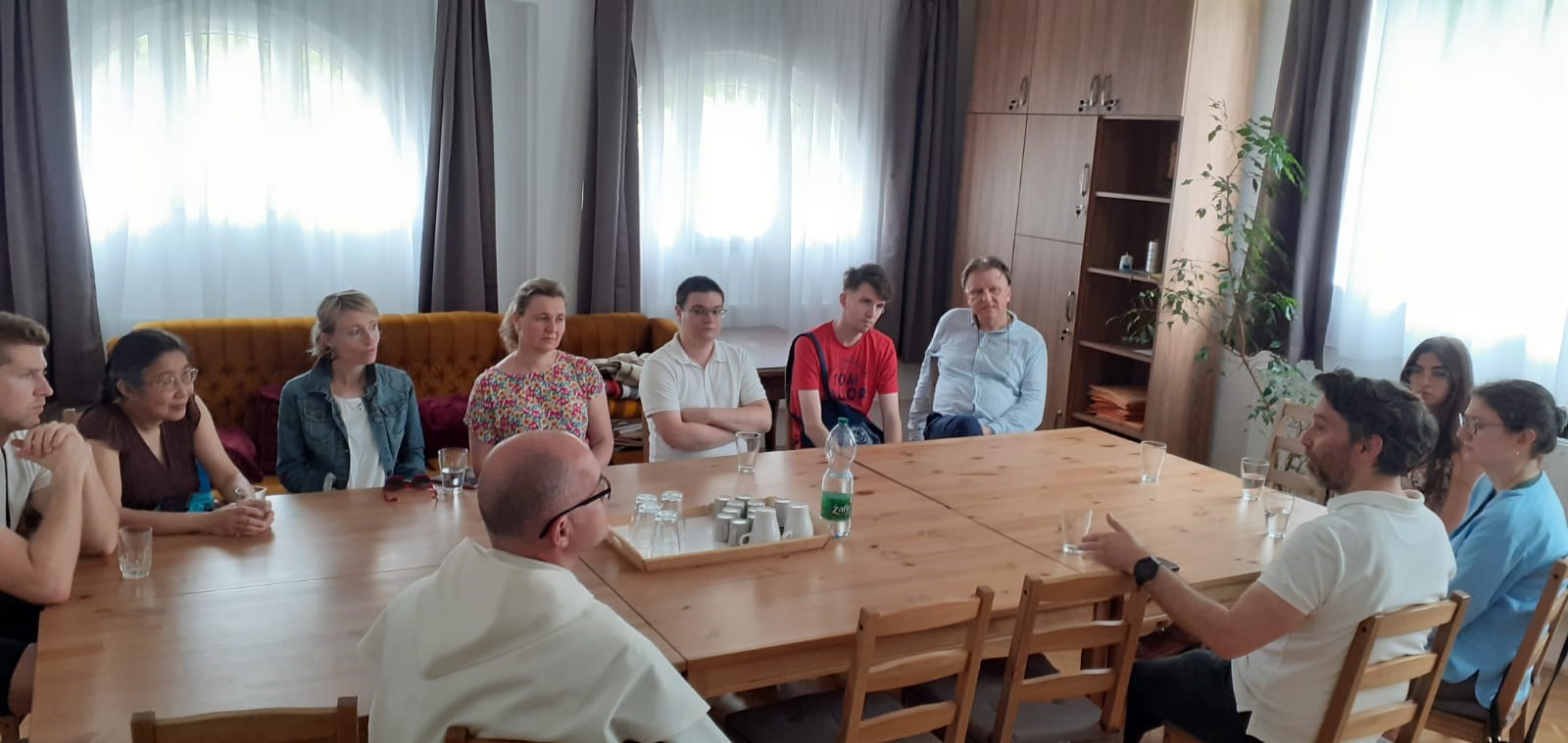
The program of the second LEANbody workshop contained also several social programs with focus on European cultural roots of western university education. UNESCO heritage site of 4th century Roman Christian culture and a Pauline Monastery with spiritual health services was visited by project partners as well as a student-teacher participated Holy Mass at the Jesuit church of the campus.
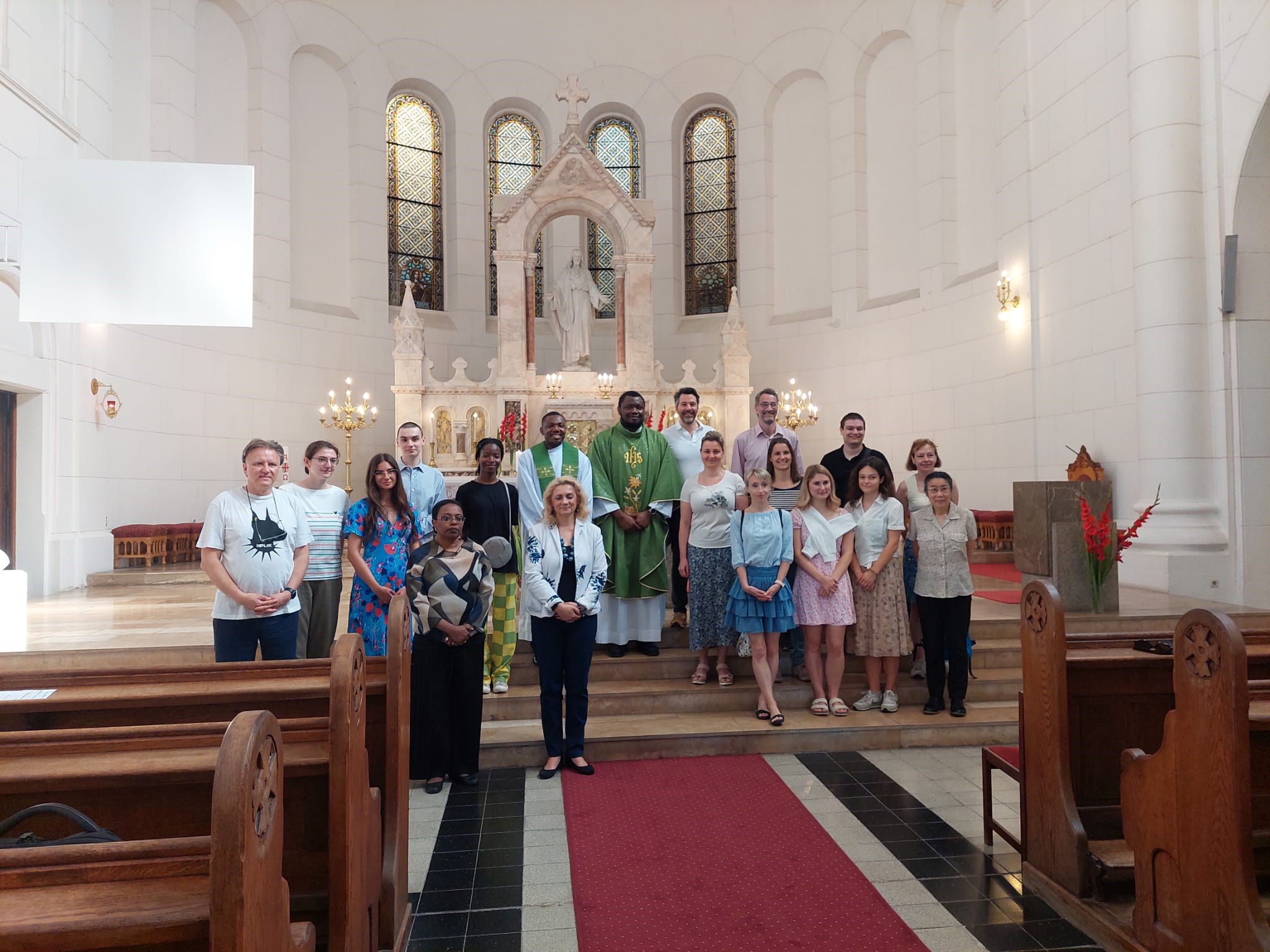
International Symposium on Teaching Anatomy - Pécs, 06. 2023
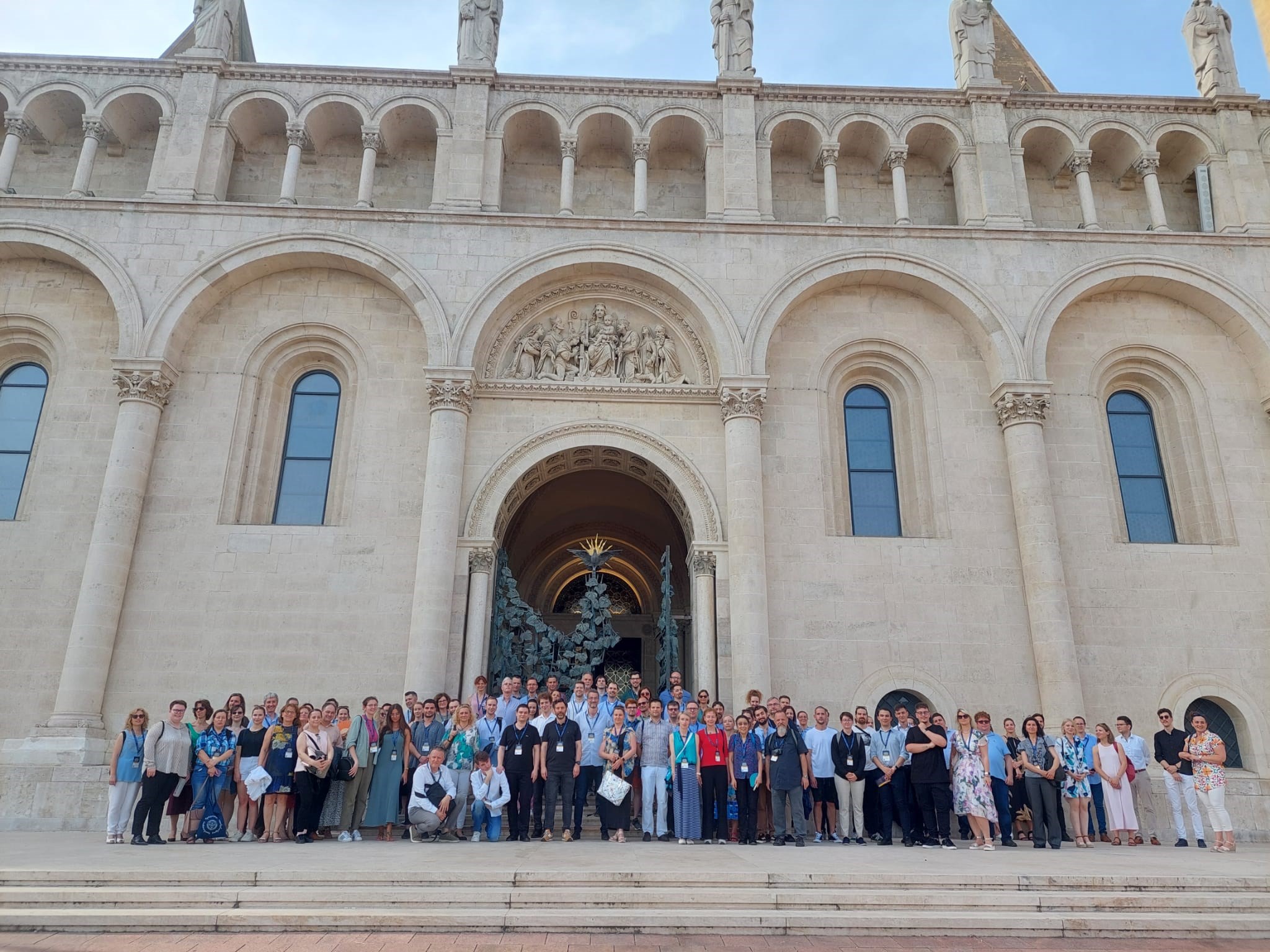
The first multiplier event of the project took place on 22nd June 2023 as part of the Hungarian Anatomy Conference which was a symposium about this project organised for a target group surveyed by our needs analysis: anatomists in Hungary. Venue of the meeting was at University of Pécs, Medical School. Hungarian anatomists, according to our needs analysis, were almost all among the 50% of all surveyed anatomists who struggle with high failing rates of their students in their anatomy courses. They confessed to know little about international standards of medical education, about student centered learning, about attitude measurements of students and of mental health management. The symposium featured presentations on teaching traditions from universities involved in the LEANBody project, including University of Cambridge: Professor Cecilia Brassett discussed the emphasis on personalized learning and mentorship, fostering a supportive and challenging academic atmosphere. Masaryk University in Brno: On behalf of their team, a representative introduced their university and anatomy education approach, sharing methods for integrating technology into the classroom to promote a more dynamic and interactive learning environment.
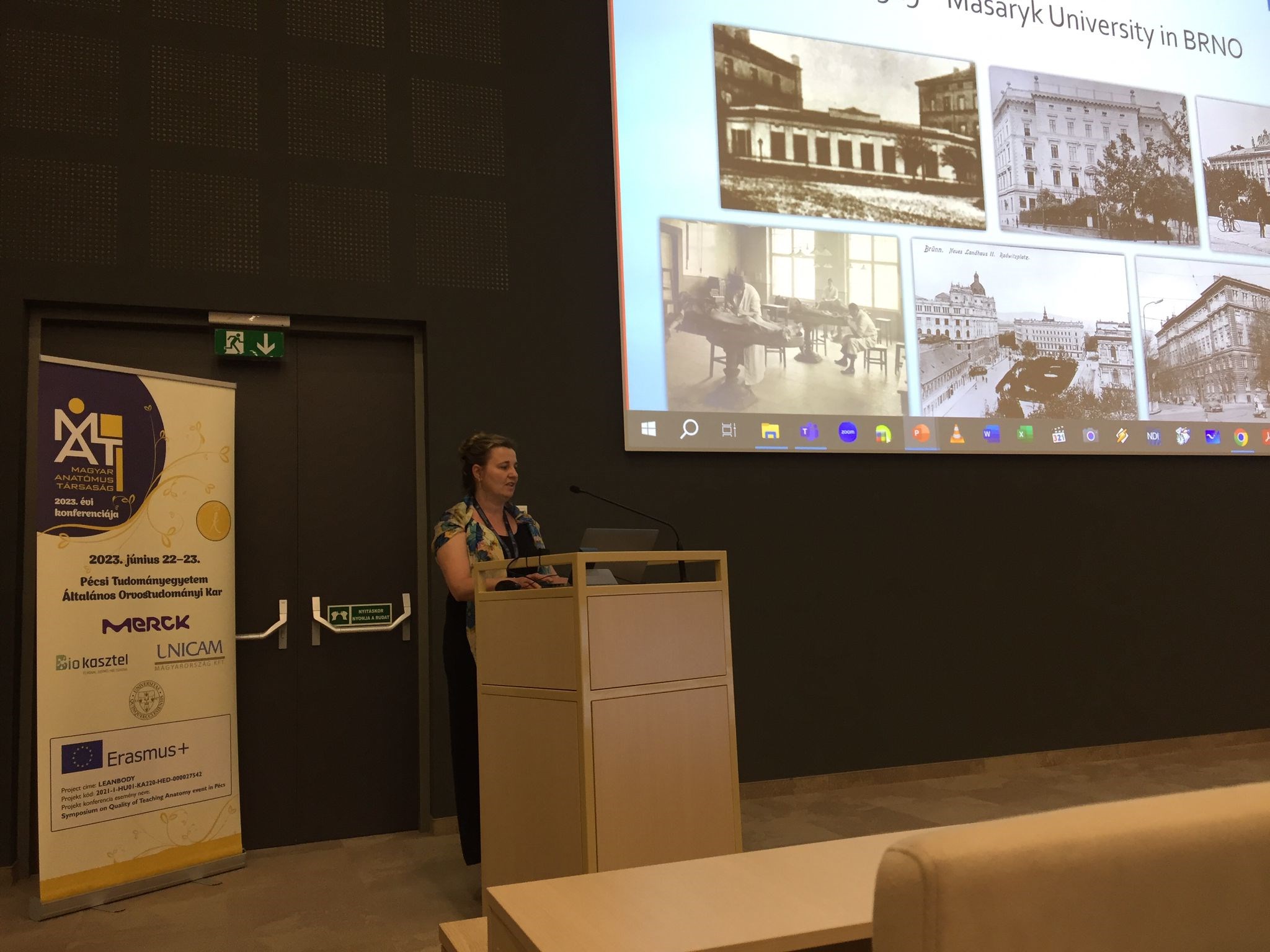
University of Zagreb: Professor Zdravko Petanjek highlighted their longstanding tradition of rigorous academic standards combined with modern pedagogical techniques, showcasing changes after incorporating alignment into their curriculum. University of Pécs: Professor Dóra Réglódi emphasized a blend of traditional and innovative teaching methods, focusing on interactive and practical sessions to enhance student engagement. Additionally, the Karolinska Institute: Dr. Amani Eltayb presented their teacher support systems. Dr. Slawomir Wójcik from Gdańsk gave an interesting lecture on the Scapula Aurea, focusing on the integration of medical students into the anatomy community. The University of Gdańsk is not part of the LEANbody project.
Transnational Project Meeting in Pécs - 04. 2024
University of Pécs organised a successful and fruitful project meeting in cooperation with the international consortium implementing the Leanbody project. The partners from the UK and Croatia participated in person, while the Czech and Swedish partners participated online.
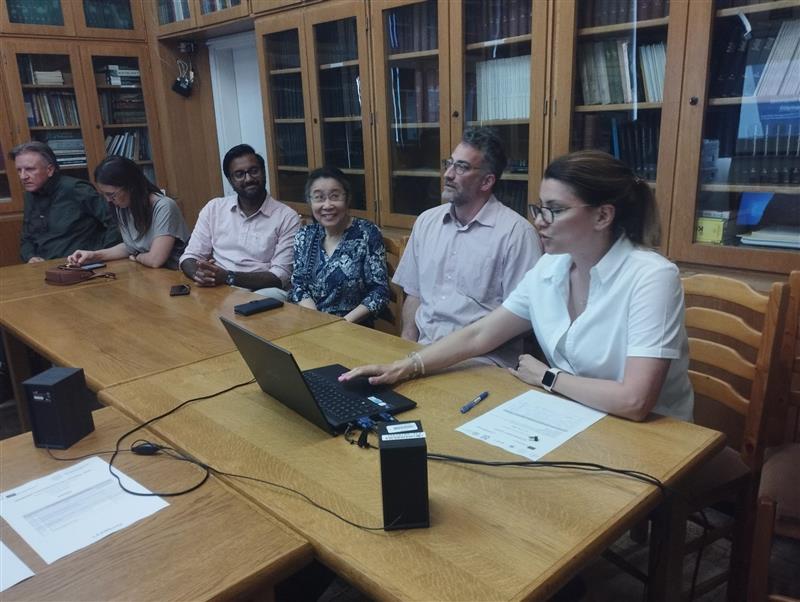
During the meeting, the participants were given an insight into the teaching practice of the Institute of Anatomy at the Faculty of Medicine of the University of Pécs, and had the opportunity to discuss both theoretical and practical training methodologies. During the meeting, the participants also reviewed the progress and further work on the project's professional activities and the administrative tasks as well. Key Highlights: Dr. András Nagy shared updates on project results, focusing on the table of contents for the Guidebook. Partners provided input to refine subchapters and their order. Discussions addressed problems identified in the first two surveys, emphasizing the need for a standardized procedure for all project topics. As a result, the consortium agreed on a standard approach.
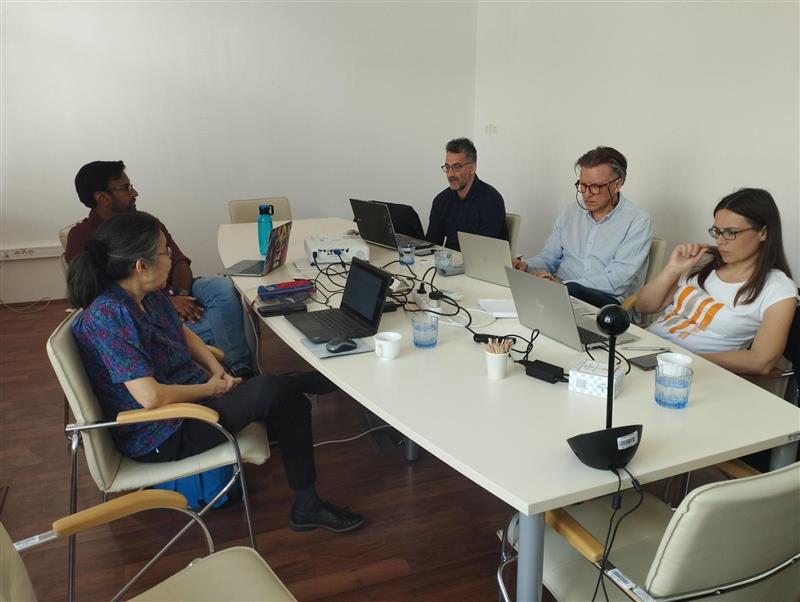
| Prilog | Veličina |
|---|---|
| agenda-leanbody-workshop-in-pecs-2023-4.pdf | 35.49 KB |

